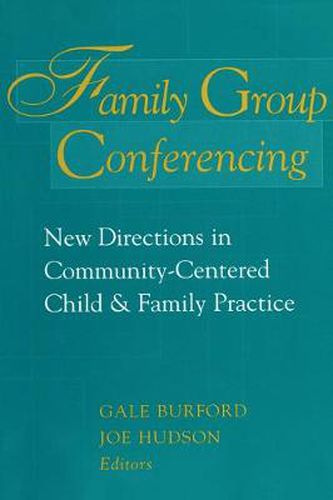Readings Newsletter
Become a Readings Member to make your shopping experience even easier.
Sign in or sign up for free!
You’re not far away from qualifying for FREE standard shipping within Australia
You’ve qualified for FREE standard shipping within Australia
The cart is loading…






Critics of empowerment models have charged that families who become the subjects of child abuse investigations are too dysfunctional to contribute in a meaningful way to making decisions about how to protect the children in their own families. Apart from its usefulness as a reference manual, this book shows that family members have, in fact, worked together with mandated authorities to find lasting solutions for problems associated with keeping children safe. It also presents current information on related approaches, such as community conferences, circles, and wrap-around services used in child and family welfare settings of various kinds. Such approaches entail a shift in assumptions about the way child welfare services are planned and delivered, away from models that emphasize pathology and toward those in which an ecological understanding of the families and social networks involved in grappling with the problems is sought.
$9.00 standard shipping within Australia
FREE standard shipping within Australia for orders over $100.00
Express & International shipping calculated at checkout
Stock availability can be subject to change without notice. We recommend calling the shop or contacting our online team to check availability of low stock items. Please see our Shopping Online page for more details.
Critics of empowerment models have charged that families who become the subjects of child abuse investigations are too dysfunctional to contribute in a meaningful way to making decisions about how to protect the children in their own families. Apart from its usefulness as a reference manual, this book shows that family members have, in fact, worked together with mandated authorities to find lasting solutions for problems associated with keeping children safe. It also presents current information on related approaches, such as community conferences, circles, and wrap-around services used in child and family welfare settings of various kinds. Such approaches entail a shift in assumptions about the way child welfare services are planned and delivered, away from models that emphasize pathology and toward those in which an ecological understanding of the families and social networks involved in grappling with the problems is sought.